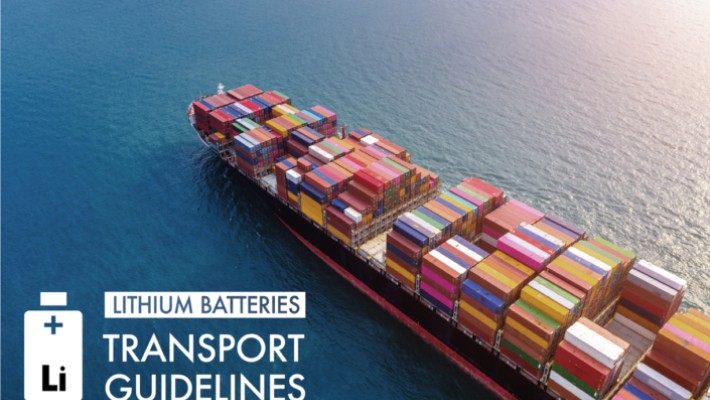Freight Forwarder Insights
Huin International Logistics Latest Articles
Transporting & Shipping Lithium Batteries by Air, Sea, Road & Rail
Transporting lithium batteries demands strict adherence to regulations and safety protocols to guarantee their secure and efficient shipment. Given their classification as hazardous materials, the rules governing their transportation are intricate and can differ internationally, adding to the complexity for both individuals and enterprises.
For those based in the United States, it is crucial to be well-informed about the primary regulations and safety guidelines pertinent to the shipping of lithium batteries.
Let's delve into the key aspects….
Regulatory Bodies for Lithium Battery Shipping
The transportation of lithium batteries is tightly regulated by both international and national organizations to ensure safety measures are maintained.
These authorities define standards for the correct packaging, labeling, handling during transportation, and recycling of lithium batteries, all aimed at minimizing risks such as fires and other hazards.
Domestic Shipping of Lithium Batteries in the United States
In the U.S., multiple government agencies share the responsibility of regulating the shipment of lithium batteries by road, rail, air, and sea:
-
Department of Transportation (DOT): Oversees the transportation of hazardous materials, including lithium batteries. The DOT’s Pipeline and Hazardous Materials Safety Administration (PHMSA) enforces specific regulations related to lithium battery shipping.
-
Environmental Protection Agency (EPA): handles the regulations for the shipment of waste batteries, including lithium batteries.
-
Consumer Product Safety Commission (CPSC): Ensures the safety of consumer products, including lithium batteries.
-
Occupational Safety and Health Administration (OSHA): Regulates the safe handling and disposal of lithium batteries in work environments.
Shippers within the United States must adhere to the guidelines and standards set forth by these agencies to ensure safe and secure transport of lithium batteries.
International Shipping of Lithium Batteries
When shipping lithium batteries abroad, several international organizations come into play, each offering different frameworks for safety:
-
International Civil Aviation Organization (ICAO): Establishes standards for the air transport of hazardous goods, including lithium batteries, through its Technical Instructions for the Safe Transport of Dangerous Goods by Air.
-
International Maritime Organization (IMO): Sets maritime transport standards for dangerous goods, including lithium batteries, through the International Maritime Dangerous Goods Code (IMDG Code).
-
European Union (EU): Implements its regulations on the transport of dangerous goods, including lithium batteries, via Regulation (EC) No. 765/2008.
-
United Nations (UN): Provides global recommendations for the transport of dangerous goods, including lithium batteries, through its Recommendations on the Transport of Dangerous Goods (UNRTDG).
These international organizations collaborate to ensure the global safe and efficient transportation of lithium batteries. However, regulations can vary from country to country, so it is critical to stay updated on them.
Whether it is domestic or international transportation, HUIN International Logistics has extensive operational experience in battery transportation. The company's internal team has received professional training in dangerous goods transportation and can skillfully transport your goods to the destination successfully.
